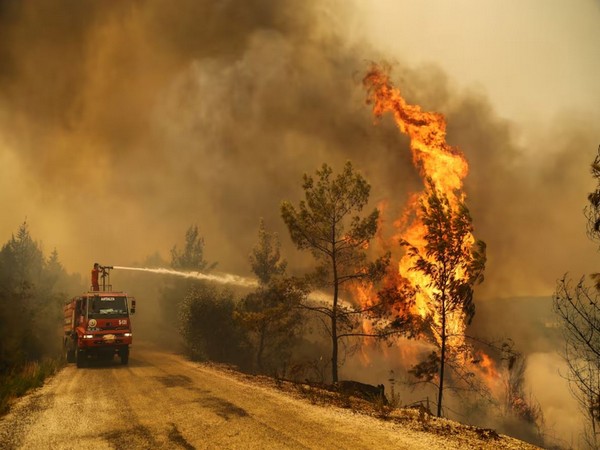WHO team finds possible signs of wider COVID-19 outbreak in Wuhan in December 2019: Report
Feb 14, 2021

Washington [US], February 14 : Investigators from the World Health Organisation (WHO) looking into the origins of coronavirus in China have discovered that signs of the outbreak were much wider in Wuhan in December 2018 than previously thought, CNN reported.
The investigators are urgently seeking access to hundreds and thousands of blood samples from the city that China has not so far let them examine.
The lead investigator for the WHO mission, Peter Ben Embarek, told CNN in a wide-ranging interview that the mission had found several signs of the more wide-ranging 2019 spread, including establishing for the first time there were over a dozen strains of the virus in Wuhan already in December.
The team, which arrived in China in January and spent four weeks looking into the origins of the COVID-19 outbreak, also met the first patient Chinese officials said had been infected, an office worker in his 40s, with no travel history of note, reported infected on December 8.
The CNN said, in a report, that the slow emergence of detailed data gathering on the WHO recent trip may add to concerns voiced by other scientists studying the origins of the disease that it may have been spreading in China long before its first official emergence in mid-December.
Embarek, who has just returned to Switzerland from Wuhan, told CNN: "The virus was circulating widely in Wuhan in December, which is a new finding."
The WHO team on Tuesday said that there is no evidence of coronavirus circulation in any animal species in China.
During a press conference, Peter Ben Embarek, the head of the WHO mission in Wuhan, had stated four hypotheses on how the virus spread but reiterated that "laboratory incident hypothesis is extremely unlikely to explain the introduction of the virus into the human population"."It has not been possible to pinpoint any animal species as a potential reservoir for this disease, and they indicate that currently and also back in 2019 it does not look like there was the circulation of the virus in any animal species in the country," he said.
During the interview with CNN, the WHO food safety specialist said the team had been presented by Chinese scientists with 174 cases of coronavirus in and around Wuhan in December 2019. Of these 100 had been confirmed by laboratory tests, he said, and another 74 through the clinical diagnosis of the patient's symptoms.
Embarek said it was possible this larger number -- of likely severe cases that had been noticed by Chinese doctors early on -- meant the disease could have hit an estimated 1,000-plus people in Wuhan that December.
"We haven't done any modeling of that since," he said. "But we know ...in big ballpark figures... out of the infected population, about 15% end up in severe cases, and the vast majority are mild cases."
Meanwhile, the US on Saturday raised concerns over the possibility of the Chinese government's interference in the World Health Organisation's (WHO) recent investigation into the origins of COVID-19 in Wuhan.
"We have deep concerns about the way in which the early findings of the COVID-19 investigation were communicated and questions about the process used to reach them," said Jake Sullivan, US National Security Adviser.
He stressed on the importance of an investigation that is "free from intervention or alteration by the Chinese government" into the origin of COVID-19.



















